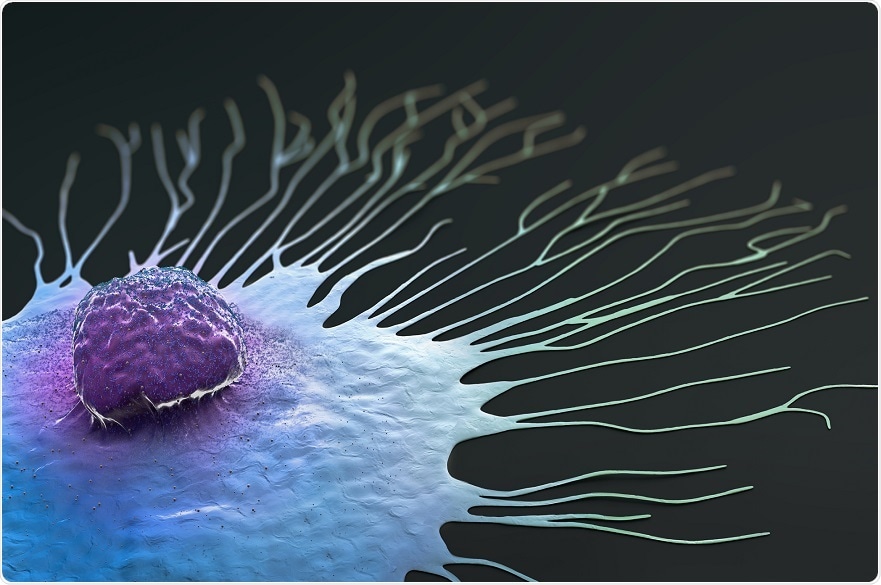Scientists have identified a gene which if present in certain breast cancer patients indicates how they will respond to specific therapies.

The study involved analyzing the tissue and treatment history of almost 13,000 patients
The work – involving a team from Nottingham Trent University and Nottingham University Hospitals NHS Trust – could help to ensure that patients are spared ineffective drugs and therefore unnecessary side effects.
The study looked at patients with oestrogen receptor positive breast cancer, which accounts for about two-thirds of all cases globally.
The work is particularly significant as there is currently no proven test that can accurately predict response to endocrine therapy or chemotherapy for these breast cancer patients.
It involved analyzing the tissue and treatment history of almost 13,000 patients with oestrogen receptor positive breast cancer, and the presence and role of the protein ‘sperm associated antigen 5’, or SPAG5.
Writing in the Journal of the American Medical Association (JAMA) Network Open the team found that there were worse outcomes for patients who showed an increased expression of SPAG5, who underwent endocrine therapy alone.
A subgroup of patients with the more aggressive ‘luminal B’ tumors responded well and survived longer, however, if they received endocrine therapy along with anthracycline-based combination chemotherapy.
SPAG5 is found in 30% of oestrogen receptor positive luminal B subclass of breast cancers which constitutes 40% of all breast cancer patients and we have found that 80% of those patients will benefit from adding chemotherapy to endocrine therapy. Our work will help to guide clinicians to the optimal treatment for these patients.”
Dr Tarek Abdel-Fatah, the Clinical Senior Scientist at NUH and scientific lead of the study
Graham Ball, Professor of Informatics in Nottingham Trent University’s John van Geest Cancer Research Centre, said: “There is an urgent need for an improved method of determining how these patients will respond to therapy.
“Although endocrine therapy has extended survival for patients with oestrogen receptor positive breast cancer, resistance to it is common and reported in up to half of patients. We need to prevent the time and distress of patients receiving needless chemotherapy and suffering unnecessary side-effects.
“We have been studying this particular molecule and its important role in breast cancer for some time. We believe it will be a significant biomarker in helping to get the most effective treatment to patients as quickly as possible.”
This important discovery will add to our ongoing project of predictive markers, which optimize treatment options for the individual patient.”
Professor Stephen Chan, Consultant oncologist at Nottingham University Hospitals NHS Trust and a visiting professor at Nottingham Trent University
The work is funded by the National Institute for Health Research's Invention for Innovation programme.
Source:
Journal reference:
Abdel-Fatah, T.M.A., et al. (2020) Association of Sperm-Associated Antigen 5 and Treatment Response in Patients With Estrogen Receptor–Positive Breast Cancer. JAMA Network Open. doi.org/10.1001/jamanetworkopen.2020.9486.